High Commission of Canada celebrates 50 years of friendship with Mozambique at Canada Day 2025 in ...
“Revolution must remain a way of life” – Ramaphosa
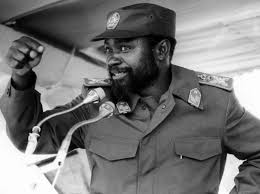
Fle photo / Samora Machel
Mozambique’s first President, Samora Machel, taught fellow freedom fighters “that the task of the African revolution is to invent a new society whose cornerstone is the welfare of all, not the exploitation of one by another”, declared South Africa’s Deputy President, Cyril Ramaphosa, on Monday.
He was speaking alongside Mozambican Prime Minister Carlos Agostinho do Rosario, Machel’s widow Graca and other members of the Machel family, at a ceremony in Mbuzini, in the South African province of Mpumulanga, to mark the 30th anniversary of Machel’s death.
The ceremony took place on the hillside where Machel’s plane crashed on 19 October 1986, killing the President and 34 members of his delegation, who were returning from a summit in Zambia. Here the South African government has built a memorial and a small museum to honour Machel.
“At a site like this one”, said Ramaphosa, “we are poignantly reminded that Africa’s heroes and heroines paid a grave price for freedom from colonial bondage. It is a constant reminder that we, the beneficiaries of the selfless sacrifices of our heroes and heroines, must never take freedom for granted”.
“It reminds us that revolution must remain a way of life as we struggle to break free of the clutches of poverty, inequality and underdevelopment”, he added.
But are the societies of today’s southern Africa really what Machel fought and died for?, mused Ramaphosa.
“Thirty years after the tragedy, we are bound to ask whether President Samora Machel would be satisfied with the progress we have made in ushering in an era of peace, unity and prosperity”, he said. “We must ask ourselves whether we are equal to the task of creating inclusive societies that share their wealth among their people. Would Samora Machel be satisfied that we have invented a new, humane social order at the service of the vulnerable?”
If Machel were “to assess us as leaders, would he be satisfied that on a daily basis we work tirelessly to build lasting unity among the people?”, Ramaphosa asked.
He compared Machel to Tanzania’s founding president Julius Nyerere, and to the South African heroes Oliver Tambo and Nelson Mandela. “In honouring those leaders”, Ramaphosa stressed, “we must remember that leadership to them meant only dedicated service to Africa, not to advance their personal interests, but to advance the interests of the people of Africa”.
“They knew that leaders had to lead by example to build trust, confidence and consensus in the interests of the well-being of Africa’s toiling masses”, Ramaphosa added.
Turning to the stark Mbuzini monument, with its 35 tall metal pillars, each symbolising one of the victims of the crash, Ramaphosa said the memorial “was intended to give visitors an experience of discomfort. The 35 steel tubes are designed to bleed red as they rust. Visitors are meant to hear the lamenting sounds of the pillars with the blowing of the wind. This memorial is intended to generate a sense of unease”.
“This memorial”, he continued, “must trouble the conscience of all African patriots when they realise that our people continue to languish in poverty, deprivation and want”.
The monument “must inspire the young people of our countries to make the best use of opportunities available to them to improve their lives and their people. It must not allow anyone of us to be comfortable when our mothers and children live in despair and are exposed to danger”.
“I see President Samora Machel as a great inspiration for the task that lies ahead; for the work that we must continue to do in his honour”, Ramaphosa declared. “We must be willing to make personal sacrifices to achieve prosperity and peace for the generations that will follow us”.
“As I remember Samora Machel, whom I never met, I feel that today I have come to a place of great inspiration”, he concluded. “I leave here with unbelievable determination and inspiration to continue the work that Nelson Mandela, Samora Machel, Oliver Tambo and many other leaders stood for so that we can improve the lives of our people”.
By: Paul Fauvet


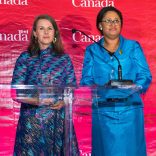
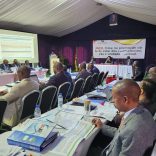
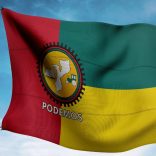
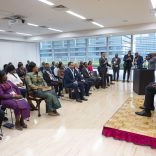

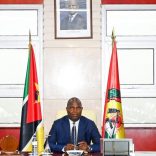




Leave a Reply
Be the First to Comment!
You must be logged in to post a comment.
You must be logged in to post a comment.